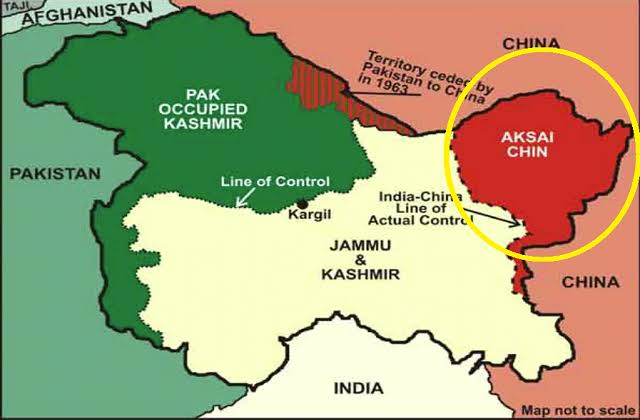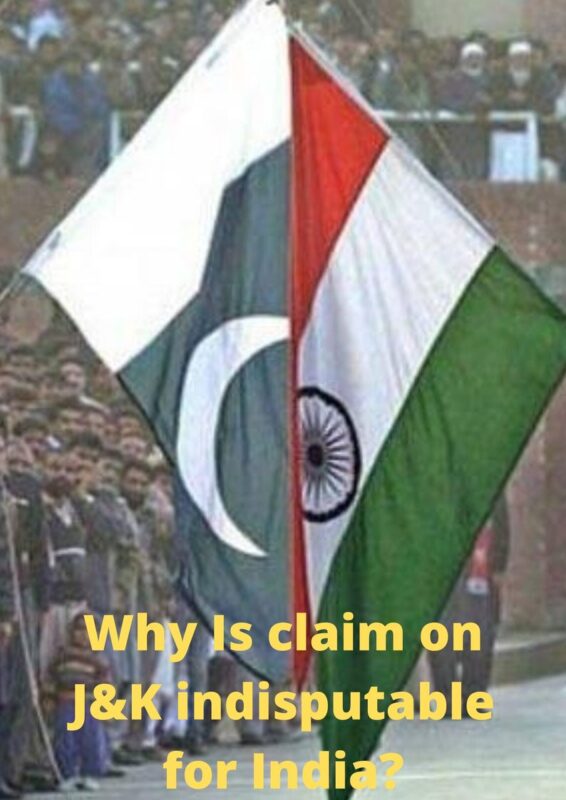India is going to have Jammu and Kashmir forever. Or, at least one can say it’s not going to the feudatory nation Pakistan.
Article 370 acknowledged special status to Jammu and Kashmir but although it was a law in itself, it was temporary. One common Indian still asks why the previous governments have treated it like permanent and have played with the idea of one nation, one flag. But after the amendment in 2019, that special status was taken away and for good to integrate the state in the Indian mainstream.
Article 370 was temporary for primarily two reasons:
- The President of India could remove it.
- It was a stop-gap measure until a constitution of J&K was framed.
It was rendered useless just when the constitution of Jammu and Kashmir came into force and it declared itself an integral part of India. The state of Jammu and Kashmir is and shall be an integral part of the union of India.” It was meant to preserve the relationship of the state and the union of India until 1956 when the J&K constitution came into force and represented the voice of Kashmiris legally in favor of India. So, even removing article 370 will not give rise to any new questions of accession whatsoever. For abrogating it, however, the recommendation of the constituent assembly of Jammu and Kashmir is needed, which is not present today. It has already served its purpose by acting as a bridge between India and J&K. Moreover, the state of Jammu and Kashmir is bound to India by the instrument of accession, Article 1 and 1st Schedule of the Indian constitution where it is declared as a part of the country.
One can still question if J&K was occupied by force. But as per the instrument of accession, in matters of foreign affairs, defense, and communication, India has the last word. So if a nation legally controls the said affairs of a state which has already declared itself an integral part of that nation, it is difficult to understand as to why J&K should be considered independent at all. Leave alone the claim of Pakistan over it, it’s nowhere in the picture. This is why India’s position remains that ‘Pakistan occupied Kashmir’ and ‘China Occupied Kashmir’ rightfully belongs to the state of India indisputably.
Also, when India needs only consultation and no necessary concurrence with the state government on the subject matters mentioned in the instrument of succession and has the supreme power over its communication, only India can represent J&K to the third party.

When we talk of the UN resolution of 1948, the very first requirement was the withdrawal of troops completely from Pakistan’s side and only the bulk of Indian troops from the Kashmir region to maintain law and order. If ever the demand for a referendum comes, the Islamic Republic Of Pakistan will have to vacate PoK. China too will have to give away the 800 square kilometers of land in northern Kashmir and Ladakh that, according to the Sino-Pakistan Agreement of 1963, was given away to China by Pakistan. India doesn’t recognize this as legal especially when Pakistan claims that the region is disputed. So, do any of our social justice warriors and media houses like Al Jazeera, that keep calling Jammu and Kashmir “Indian-administered” or “Indian Occupied”, see this happening or UN Security Council taking over China on this matter any time soon?

Now if we come down to the cultural history of Kashmir, it is Indian in every sense. It is nothing like the two-nation theory but has always preached by its very existence, syncretism. The version of Islam practiced has been more Indian and open, so to speak. The Hindu pilgrimage and Sufi shrines existing together speak for the cultural richness and diversity of Kashmir that Pakistan in its very mind denies and discards from its value system and constitution. There have been people of all faiths in the state and after the amendment of Article 370, restoration of Kashmiri Pundits after 30 years in exile, seems possible.
Sheikh Abdullah, the founding leader of Jammu and Kashmir National Conference, himself considered Pakistan to be a feudal state and believed that the minority non-muslim population will be genocided by the nation that is still not democratic in its mind. He favored India for the cultural bond and economic opportunities it could provide the people of Kashmir.
As far as Ladakhis’ traditional position in this matter is concerned, one should refer to the letter written by the head of the Buddhist Association of Ladakh at the time of accession. Ladakh has always maintained that whatever the choice of Kashmir, it wants to be with India. Their roots and future are in India.
The Pro-Muslim Conference voices in Kashmir that are still present today may raise ‘Azaadi’ Slogans but even when they realize the truth of their historical bond with India, the economic opportunities, and the Human Rights report of Pakistan occupied Kashmir, and the condition of minorities in that country, they will know the future is with the Union of India.

